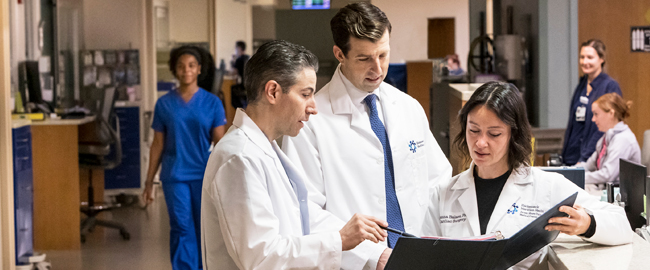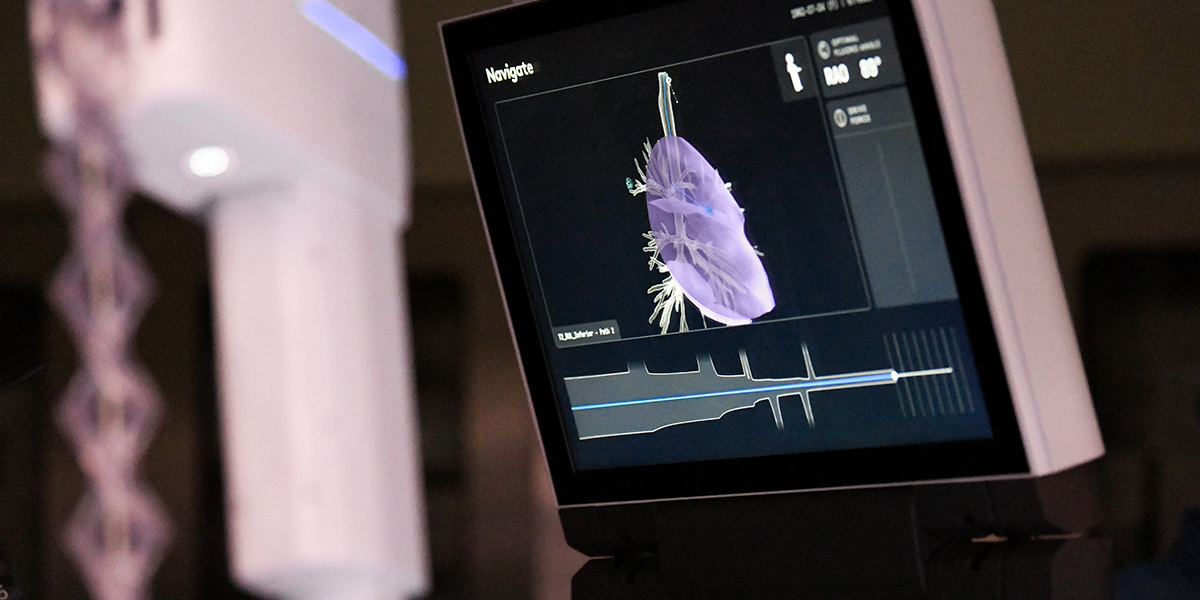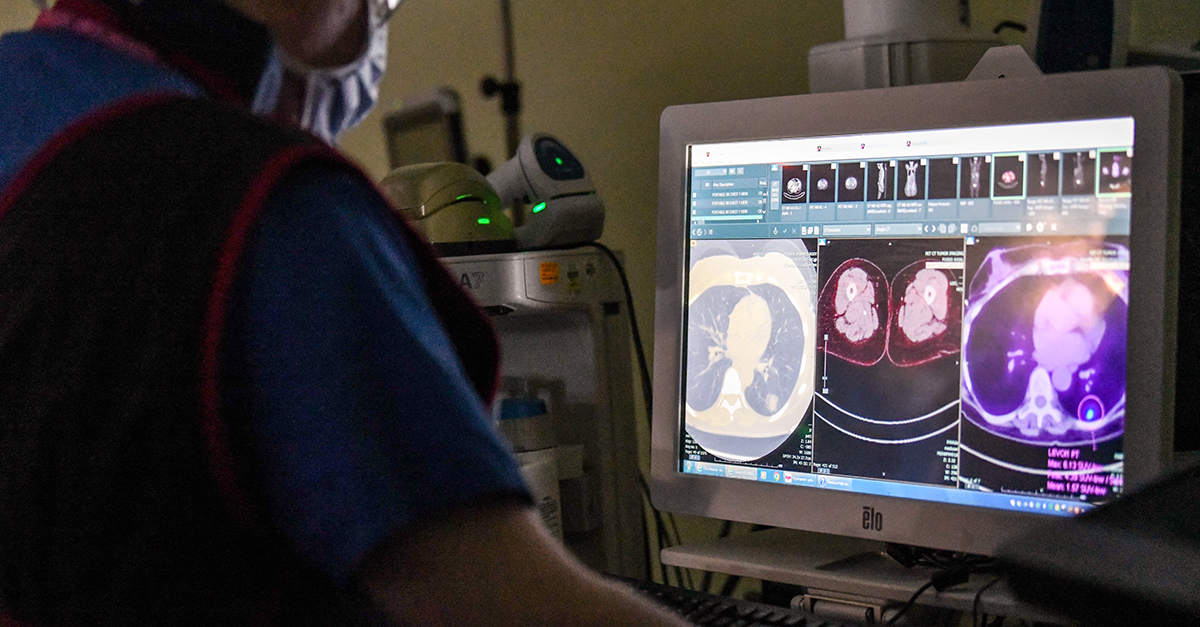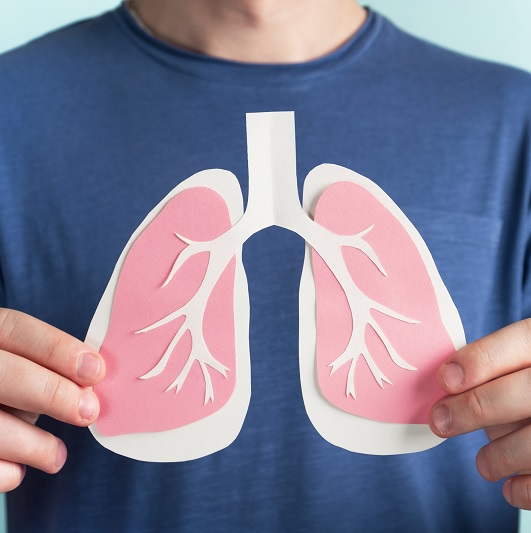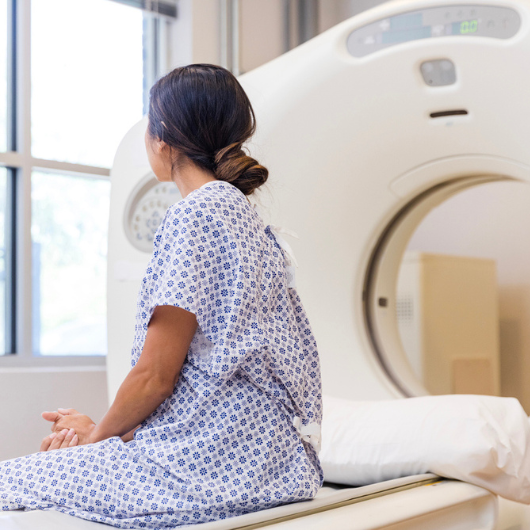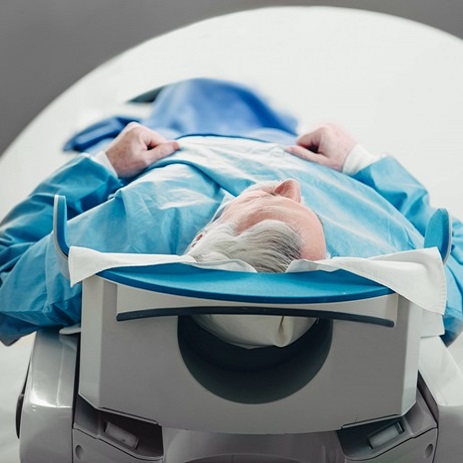Lung Nodule Care in New Jersey
Discovering a lung nodule on an imaging scan can cause worry, but it’s important to remember that most lung nodules are not cancerous. At Hackensack Meridian Health, our lung and thoracic specialists provide evaluation, diagnostics and guidance so you can get the answers you need.
We use technology such as high-resolution imaging and minimally invasive biopsy techniques to find the cause of the lung nodule and create a care plan that’s right for you. Whether your nodule simply needs careful monitoring or requires treatment, our team will work with you to ensure you receive the highest quality care in New Jersey.
What Is a Lung Nodule?
A lung nodule is a small, round or oval spot that appears in the lung. These nodules are usually found on chest X-rays or CT scans done for another reason. In most cases, lung nodules are non-cancerous (benign) and may be caused by past infections, inflammation or scar tissue. But sometimes, a lung nodule can be an early sign of lung cancer or a precancerous change – so it’s important to have it evaluated by a specialist.
Most people with lung nodules have no symptoms, which is why they are often found by accident during imaging for something else.
What Happens After a Lung Nodule Is Found?
If a nodule is spotted on a scan, your doctor may recommend further evaluation based on its size, shape and your overall health and risk factors (such as smoking history). Here’s what you can expect:
Initial Evaluation
Your care team will review your medical history, risk factors and the original scan. You may be referred to a lung or thoracic specialist for a more detailed discussion.
Advanced Imaging or Biopsy
Sometimes, more imaging is needed – such as a high-resolution CT scan or a PET scan – to get a clearer picture of the nodule. If the nodule looks suspicious, a biopsy may be recommended. This can often be done through robotic bronchoscopy, a minimally invasive procedure that allows precise access to small or hard-to-reach nodules.
Personalized Monitoring and Treatment Plan
Not all nodules require immediate treatment. Many can be safely watched over time with routine scans to make sure they’re not growing or changing. If treatment is needed, options may include surgery, targeted therapy or referral to oncology, depending on the cause and diagnosis.
Common Questions About Lung Nodules
You may be referred to a pulmonologist (lung doctor) or thoracic surgeon if:
- You have a history of smoking or other lung cancer risk factors
- Your scan shows a nodule that is larger, irregular or growing
- You’ve had cancer in the past
- You need a biopsy or other specialized testing
These experts can help determine the best path forward and avoid unnecessary testing or procedures. For more information, learn about the Lung Nodule Program at Hackensack University Medical Center.



